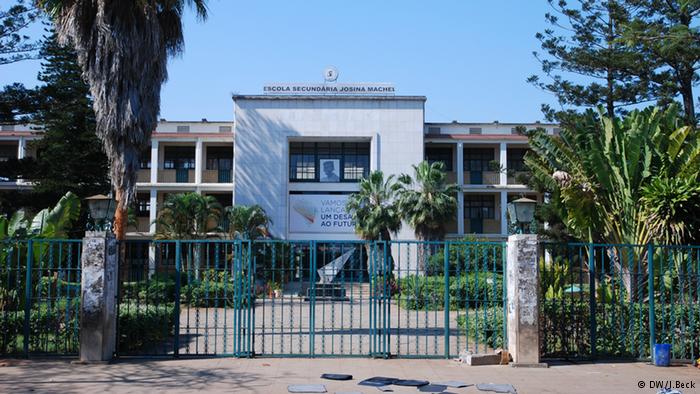Mozambique reports 11 more suspected cases of mpox - Noticias
Activists say short skirts ban “shifts the blame” onto victims – Mozambique

While the Ministry of Education maintains that banning the wearing of short skirts in schools will solve the problem of sexual harassment, civil society believes that the solution lies in changing attitudes.
Short skirts or long skirts in Mozambican public schools? The length of girl’s skirts in Mozambique’s schools is dominating debate in the capital ever since the Ministry of Education banned short skirts claiming that they are one of the reasons behind sexual harassment and rape in the country.
Some public schools now oblige female students to wear ankle-length ‘maxi-skirts’, but civil society bodies say this is not the solution, as it shifts the focus from the aggressor to the victim.
The Young Feminists Movement’s Suzete Marques says that the way students dress can never justify aggression or rape, and that the former knee-length school uniforms did nothing to offend modesty.
“What is education when we reverse victim and offender, removing the perpetrator’s guilt to the victim? A few years ago we worked on several campaigns where we discovered that teachers who raped were simply transferred to other schools. The blame is always placed on the student,” laments the activist.
On the other side of the equation, Minister for Education and Human Development Jorge Ferrao says that schools are no place for fashion shows, and underlines that the decision aims to control how the students present themselves in the country’s educational establishments.
“There are secondary education regulations which give exact descriptions and measurements for uniforms. School is no place to hit the catwalk. We are doing this for the sake of our children,” Ferrão says.
Police prevents press conference
To call the government’s attention to the problem, civil society recently organized a press conference to be preceded by the presentation of a street theatre piece in front of the Francisco Manyanga secondary school in Maputo, but the police stopped the activity because it allegedly did not have authorization.
Five women were detained and later released by police.among them were two journalists who were covering the event. Julio Langa from Men for Change network (Homens pela Mudança), who was there, criticized what he characterized as the police’s unnecessarily repressive attitude.
“I find it highly regrettable. The ladies were conducting an activity related to respect for the woman’s body, trying to draw attention to the focus that should exist when we talk about the presence of girls in schools. The focus is not on how the girl dresses but on the security and the content transmitted in schools,” Langa said, adding that “the police reaction was excessive”.
This is the second time that government authorities have sought to dictate the style of women’s clothing. In 2011, the Municipal Council of Lichinga in Niassa province, northern Mozambique, adopted a resolution prohibiting the wearing of short skirts in the city as a way of combating prostitution, but the measures was later dropped after criticism from pressure groups.













Leave a Reply
Be the First to Comment!
You must be logged in to post a comment.
You must be logged in to post a comment.